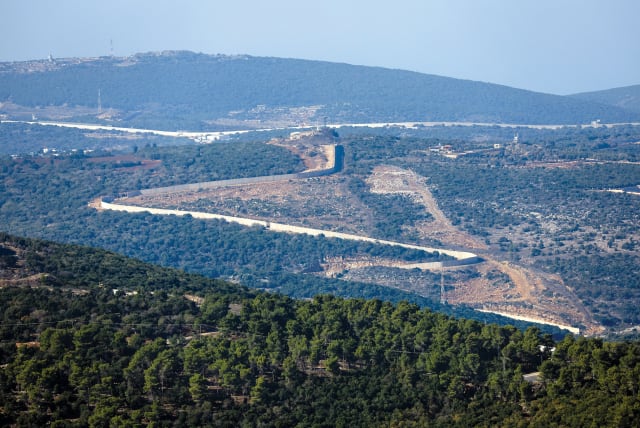Startup owners, investors: We must support northern Israel or ‘no option’ but to leave

As communities in northern Israel remain evacuated and the once-robust economy there slips towards collapse, entrepreneurs urge the Israeli government to support a return to the north.
More than 70 business and startup owners and investors drove to the northern Israeli community of Kibbutz Mahanayim in the Upper Galilee region near the Lebanese border last week on a mission to show solidarity and support for the once-robust economy there, which today, after nearly five months of war, is slipping towards collapse.
The Iranian proxy Hezbollah has been firing rockets and drones from southern Lebanon into northern Israel since the beginning of the Israel-Hamas war on Oct. 7, and more than 40 northern Israeli communities have been evacuated, displacing tens of thousands of residents.
The head of the Upper Galilee Regional Council, Giora Salz, told The Media Line that half the agriculture in the region has been shut down, tourism has fallen to zero, and up to 85% of the companies that had started up in or relocated to the Galilee region in the past five years had left.
An unmet need to revive the north
He said the Israeli government is not helping to sustain or revive the region.
“The government is not with us today,” he said. “We have our abilities, but we need the government to work with us, and produce and execute a big economic plan which will lay the foundation [for a return to the north] over the next three to five months. Without the government’s support to recover business, tourism, and agriculture … we will do it, but it will take more time, and the level [quality] won’t be as high, to put it mildly.”
Erel Margalit, founder and CEO of the Jerusalem Venture Partners and Margalit Startup City incubators, told The Media Line, “Every month that goes by, there’s a big price to pay. There are tremendous losses with every additional week that people are evacuated, because people, small businesses, are losing their livelihoods, people that have startups need to relocate them, and a lot of the people are no longer staying.”
Arik Dayan, head of the strategic committee at Tel Hai College in northern Israel and chairman of the Israel AgriFood-Tech Valley association, told The Media Line that billions of shekels had been invested in the college’s campuses and programs, and great damage had been done.
“Today we have nearly 6,000 students,” Dayan said. “But 60% of our students evacuated after the 7th of October. And 60% of the people who work in Tel Hai, which is the biggest employer in the eastern Galilee, with 1,550 employees, are [scattered] from Eilat to Yesod Hama’alah. Meaning that today when we are teaching the students, we are doing a matrix where maybe the lecturer is in Tel Aviv and the student is in a house somewhere in Haifa.”
Additionally, some 500 teachers and students from Tel Hai are still serving in the Israel Defense Forces reserves, requiring special planning to enable them to continue their work.
With the aim of helping to revitalize the Galilee, Margalit announced that he would be willing to host companies at his “startup cities” in Kibbutz Mahanayim and in the evacuated northern town of Kiryat Shmona.
“Margalit Startup City is opening its gates,” he said. “We’re bringing back some of the companies. We’re going to be talking today about some of the initiatives that we’re doing here in the north now, and this will be the sign for many who have already come back, as well as for those who want to come back.”
Jerusalem Post Store
`; document.getElementById("linkPremium").innerHTML = cont; var divWithLink = document.getElementById("premium-link"); if (divWithLink !== null && divWithLink !== 'undefined') { divWithLink.style.border = "solid 1px #cb0f3e"; divWithLink.style.textAlign = "center"; divWithLink.style.marginBottom = "15px"; divWithLink.style.marginTop = "15px"; divWithLink.style.width = "100%"; divWithLink.style.backgroundColor = "#122952"; divWithLink.style.color = "#ffffff"; divWithLink.style.lineHeight = "1.5"; } } (function (v, i) { });


